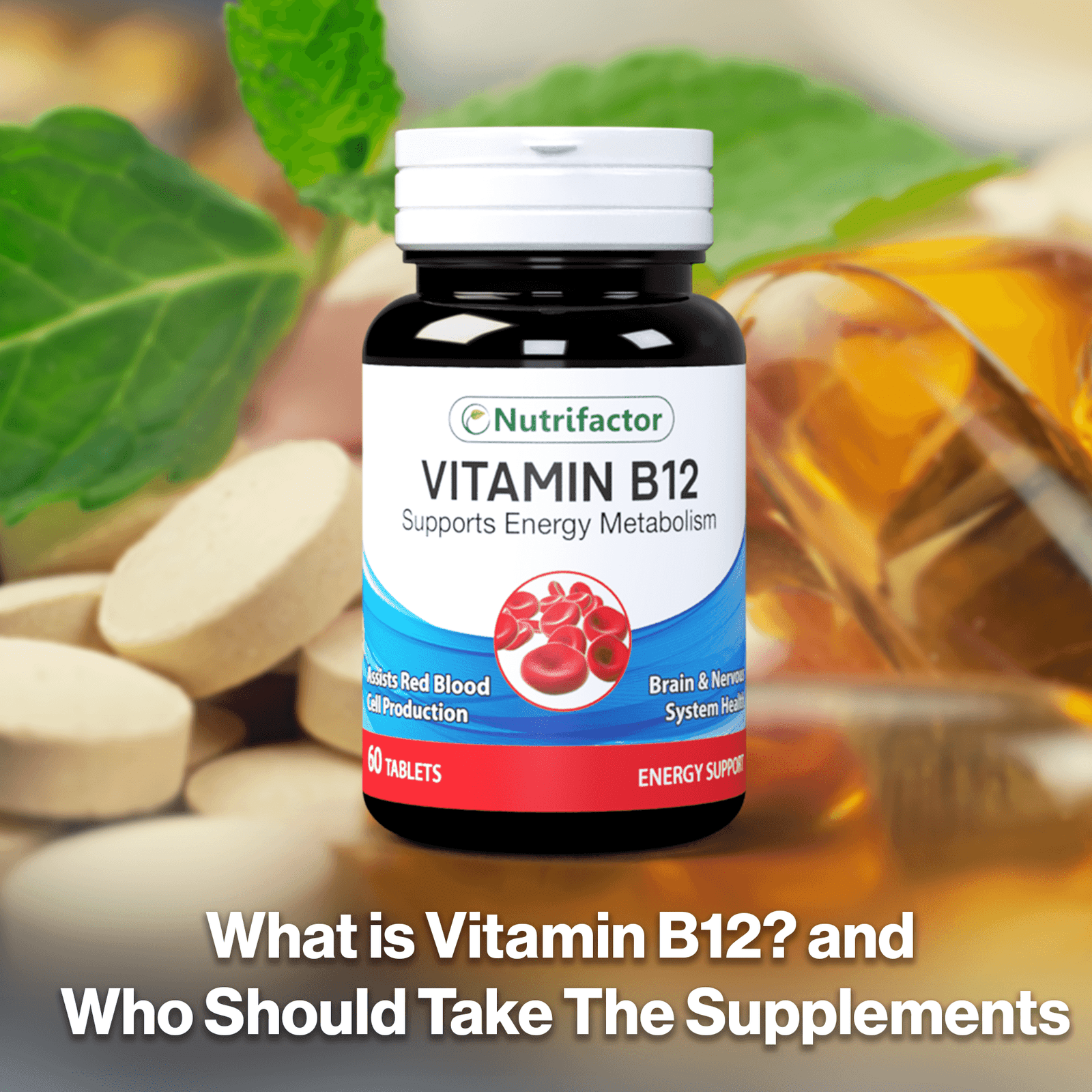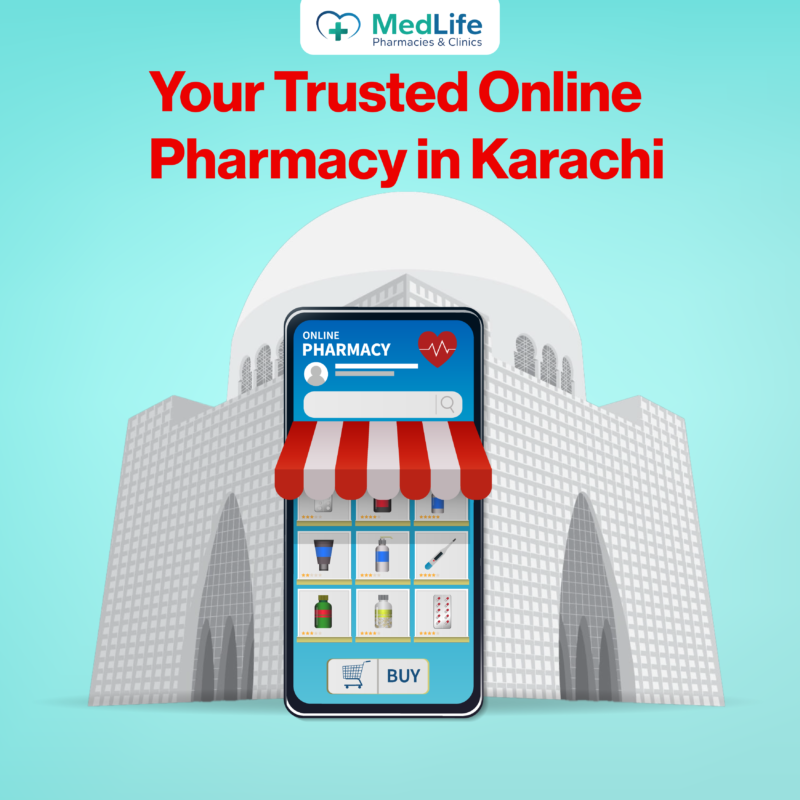What is Vitamin B12?
Cobalamin, another name for vitamin B12, is an essential water-soluble vitamin that is essential to many bodily functions. Red blood cell production, DNA synthesis support, and nerve cell health all depend on it. The human body needs to get its B12 from food or supplements because it cannot make it on its own. The primary sources of vitamin B12 are foods derived from animals, including meat, fish, dairy, and eggs. Because of this, people who strictly adhere to a vegetarian or vegan diet may find it difficult to obtain adequate B12 through food alone, which is why supplements are crucial.
Why is Vitamin B12 Important?
- Red Blood Cell Formation: Assisting in the creation of red blood cells is one of vitamin B12’s main roles. B12 deficiency can cause reduced red blood cell production, which can lead to megaloblastic anemia, a dangerous medical disorder characterized by weakness, exhaustion, and other symptoms.
- Neurological Health: Vitamin B12 is necessary to keep your neurological system in good working order. It aids in the synthesis of myelin, the layer of protection that surrounds nerve fibers and facilitates effective signal transmission from your brain to other bodily regions. Nerve damage brought on by a B12 shortage can result in symptoms like tingling and numbness as well as memory issues.
- Energy Production: B12 also plays a critical role in energy production. It helps convert carbohydrates into glucose, which the body uses for energy. This is why one of the common symptoms of a B12 deficiency is chronic fatigue.
- DNA Synthesis: Vitamin B12 is crucial for DNA synthesis, the genetic material that is necessary for cell replication. A deficiency in B12 can disrupt DNA production, affecting cellular functions and growth.
Signs of Vitamin B12 Deficiency:
A deficiency in vitamin B12 can have a variety of symptoms, some of which are subtle and may be mistaken for other conditions. Common signs of a B12 deficiency include:
- Fatigue and weakness
- Dizziness or light-headedness
- Tingling or numbness in the hands and feet
- Difficulty walking or balance problems
- Shortness of breath
- Difficulty concentrating or memory problems
- Pale or jaundiced skin
- Mood changes, including depression
It is important to note that a prolonged deficiency in B12 can lead to irreversible nerve damage and other long-term health complications.
Who Should Take Vitamin B12 Supplements?
Several groups of people are at a higher risk of developing a B12 deficiency and may need to consider taking Vitamin B12 supplements:
Vegans and Vegetarians:
Because vitamin B12 is mostly found in animal sources, those who eat a vegan or vegetarian diet may find it difficult to receive enough of the vitamin from their diet alone. Vegans, in particular, are more likely to experience deficiencies since they avoid eating any food originating from animals. Supplementation may be required if plant-based sources of B12, such as plant-based milk or fortified cereals, are unable to supply the daily need of B12.
Older Adults:
People’s capacity to absorb vitamin B12 from food declines with age. This frequently results from a drop in stomach acid, which is required to liberate vitamin B12 from food. To maintain healthy levels and avoid a deficiency, people over 50 are typically advised to take B12 supplements or eat foods fortified with B12.
People with Certain Medical Conditions:
Individuals with certain medical conditions, such as pernicious anemia, Crohn’s disease, celiac disease, or other gastrointestinal disorders, may have difficulty absorbing B12. Additionally, people who have undergone weight-loss surgery or other gastrointestinal surgeries may also struggle to absorb B12 efficiently and may require supplements.
Pregnant and Breastfeeding Women:
Women who are expecting or nursing, particularly those who eat a vegetarian or vegan diet, may need more vitamin B12 to promote their unborn child’s growth. Pregnancy-related B12 deficiency increases the baby’s risk of birth abnormalities and developmental delays. It is advised to take supplements to make sure the mother and child get adequate B12. Individuals Taking Specific Medications:
B12 absorption can be hampered by some drugs, including metformin, a drug frequently used to treat type 2 diabetes, and proton pump inhibitors (PPIs), which lower stomach acid. It’s crucial to keep an eye on your B12 levels if you’re taking these drugs and to think about supplements if needed.
Conclusion:
Vitamin B12 is a vital nutrient for maintaining overall health, particularly for red blood cell formation, nerve function, and energy production. While many people can get enough B12 from their diet, certain groups, including vegans, older adults, and those with specific medical conditions, may need to take vitamin B12 supplements to avoid deficiency. If you suspect that you may have a B12 deficiency or belong to a high-risk group, consult your healthcare provider about the best supplementation plan for your needs. Buy Now Vitamin B12 From Medlife Pharmacies & Clinics















